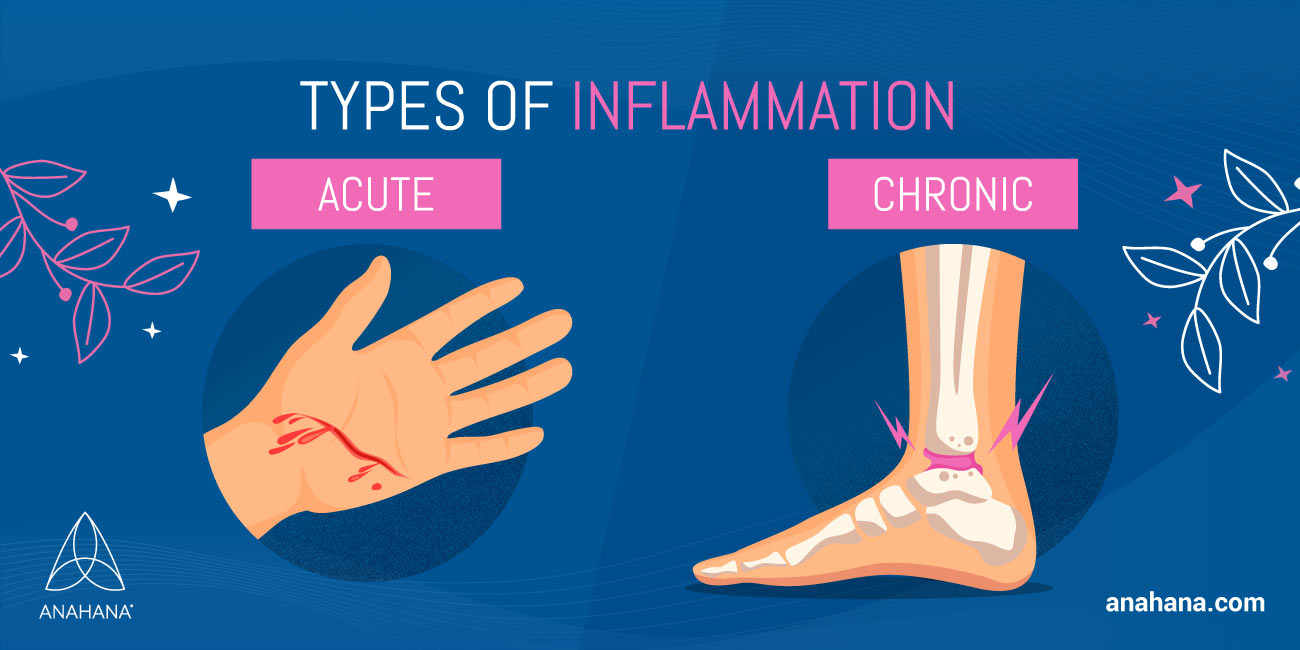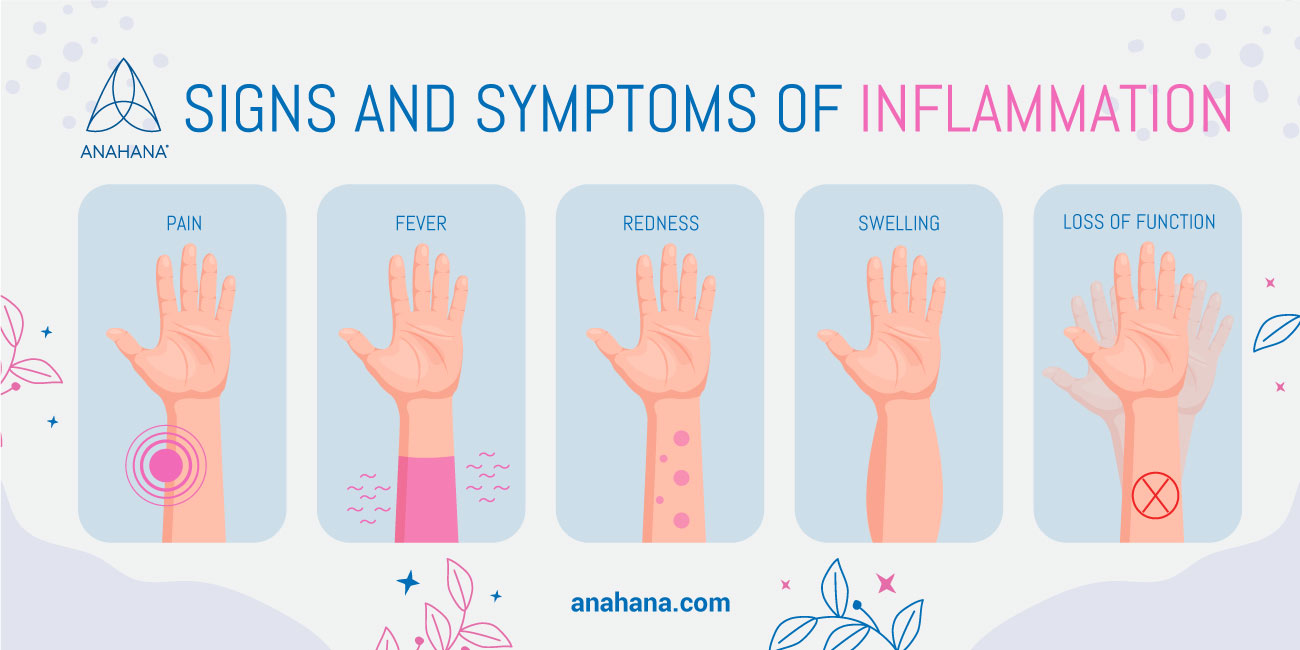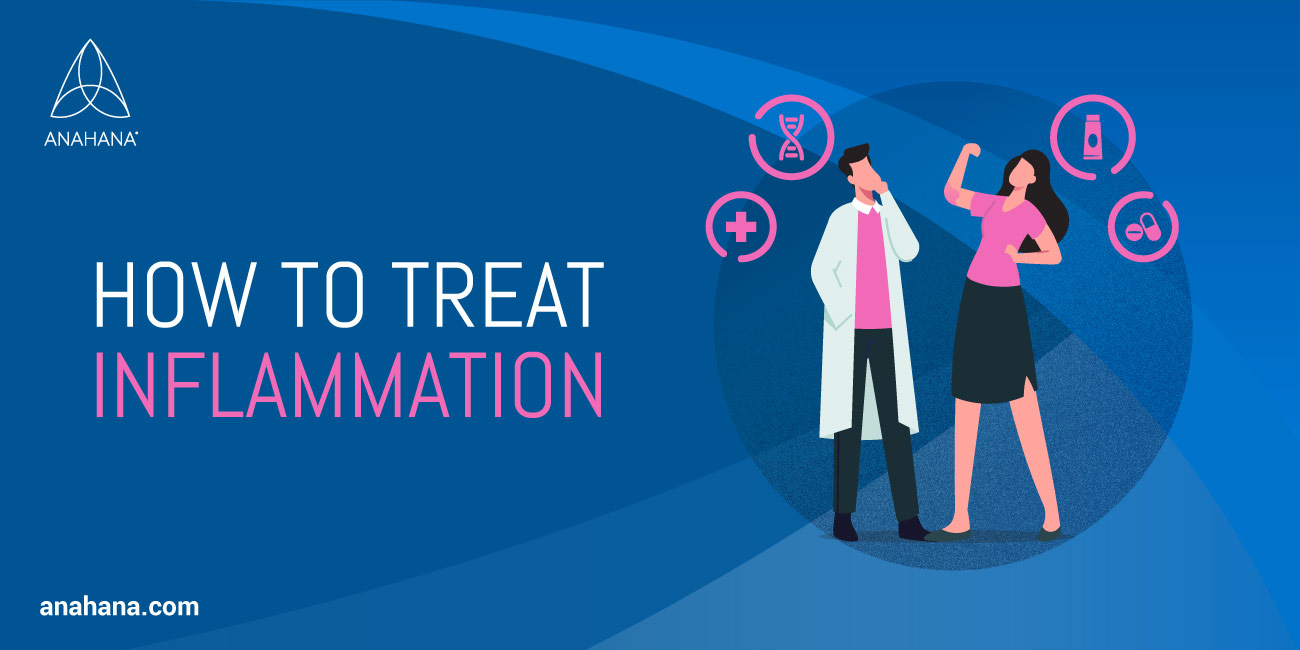6
What is Inflammation
Last Updated: November 5, 2024

Table of Contents
Discover the basics of inflammation, its causes, and simple strategies for managing it. Explore practical insights for maintaining a healthy lifestyle and making informed choices for your well-being.
Key Takeaways
- Definition: Inflammation is the body's natural response to injury or infection, involving immune system activation.
- Types: Acute inflammation is short-term, while chronic inflammation persists and can contribute to various diseases.
- Causes: Triggers include infections, injuries, toxins, and autoimmune reactions.
- Effects: Chronic inflammation is linked to conditions like heart disease, arthritis, and diabetes.
- Management: Anti-inflammatory diets, regular exercise, and stress reduction can help manage inflammation.
- Role: Inflammation is essential for healing but must be balanced to prevent health issues.
What is Inflammation?
Inflammation is an innate response of the immune system triggered by a foreign body (bacteria), injury, or infection, and it plays a critical role in the healing process.
When the body detects pathogens or a soft tissue injury, the immune system triggers inflammatory processes through reactions involving plasma proteins, blood vessels, immune cells, and mediator cells.
Inflammation is an essential part of the body's healing process. During the healing process, it eliminates and clears out necrotic cells from the injured tissue site and initiates tissue repair by beginning the inflammatory response to fight infection. The signs of inflammation include:
- Loss of function
- Redness
- Swelling
- Heat (due to increased blood flow)
- Pain
Too little inflammation could lead to the progressive destruction of tissues by harmful stimuli like bacteria. In contrast, excessive inflammation in the form of chronic inflammation is linked to various diseases such as osteoarthritis, atherosclerosis, and hay fever.
Inflammation can lead to musculoskeletal and skin diseases. Common skin diseases associated with chronic inflammation include eczema, dermatitis, drug rashes, poison ivy, and poison oak.
Types of Inflammation

Acute Inflammation
There are two types of inflammation: acute and chronic. Acute inflammation lasts a few days and occurs immediately after an infection or injury. There are two main components of acute inflammation.
The first component is cellular, where the immune system dispatches the body's white blood cells to protect and surround the area. The two most common white blood cells: leukocytes and macrophages, migrate from the blood to the site of infection or injury.
Acute inflammation may result in swelling and redness at the site of infection. The vascular phase of acute inflammation involves a series of biochemical reactions that dilate blood vessels and swelling of tissues to accommodate the influx of immune cells.
Some factors and infections resulting in acute inflammation include appendicitis and other illnesses ending with "-tis", or a sore throat from the flu or a cold.
Chronic Inflammation
Chronic or long-term inflammation can last for months or years and develops for various reasons.
The first reason is sensitivity; inflammation occurs when the body senses foreign material or external triggers, which can result in an allergy. Long-term exposure to an irritant like an industrial chemical can also lead to chronic inflammation.
Persistent acute inflammation in which an individual does not recover from the acute inflammatory response can also result in chronic systemic inflammation. It occurs in response to persistent foreign bodies, a viral infection, or autoimmune reactions.
Chronic inflammation is linked to the disease process of several long-term chronic conditions, including metabolic syndrome, rheumatoid arthritis, diabetes, Alzheimer’s, and asthma. For instance, in rheumatoid arthritis, a chronic inflammatory disease, inflammatory cells attack joint tissues, resulting in inflammation, pain, and damage to joints.
Such chronic inflammatory diseases contribute to more than 50% of deaths worldwide.
It is often more difficult to spot the signs and symptoms of chronic inflammation than acute inflammation. Some common chronic inflammation symptoms include body pain, fatigue, chest pain, fever, joint stiffness, and mouth sores (HIV infection).
Risk Factors
Individuals with conditions from chronic inflammation have higher levels of inflammatory markers in their bodies. Common risk factors of chronic inflammation include:
- Smoking
- Stress
- Sleep issues
- Older age
- Obesity
- Unhealthy diet
Both acute and chronic inflammation release inflammatory chemicals that stimulate nerve endings, leading to greater sensitivity in the affected areas.
Inflammatory Bowel Disease
Inflammatory Bowel Disease (IBD), which includes conditions such as Crohn's disease and ulcerative colitis, is influenced by a complex interplay of factors, and its exact causes are not fully understood.
However, several contributing factors have been identified:
-
Genetic Susceptibility: There's a significant genetic component to IBD. Individuals with a family history of the disease are at a higher risk, suggesting that genetics play a crucial role. Certain genes have been associated with an increased risk of developing IBD, although having these genes does not guarantee the development of the condition.
-
Immune System Response: IBD is characterized by an abnormal immune response. The body's immune system, which typically defends against pathogens, may mistakenly attack the cells in the gastrointestinal tract. This response could be triggered by environmental factors, such as an infection, in genetically susceptible individuals. This inappropriate immune response causes chronic inflammation and ulcers in the digestive tract.
-
Environmental Factors: Various environmental factors are believed to contribute to IBD. These include diet, lifestyle, and exposure to certain medications or infections. For instance, diets high in fat and refined foods and low in fruits and vegetables have been linked to a higher risk of IBD. Smoking is also a known risk factor, particularly for Crohn's disease. Additionally, the use of certain nonsteroidal anti-inflammatory drugs (NSAIDs) may exacerbate IBD symptoms, although they are not believed to cause IBD.
-
Microbiome Imbalance: The gut microbiome, the community of microorganisms living in the intestines, plays a significant role in IBD. An imbalance in these gut microbes (dysbiosis) can contribute to the development and progression of IBD. Factors like diet, antibiotics, and infections can disrupt the normal gut microbiota, potentially triggering an inflammatory response in the gut.
Causes of Inflammation
Inflammation, a fundamental aspect of the body's defence mechanism, is a complex biological response to harmful stimuli, such as injury, infection, or irritants. Understanding the causes behind inflammation is crucial for fostering a proactive approach to overall health.
Lifestyle
One primary contributor is our lifestyle, notably diet and physical activity. A diet high in processed foods and low in nutrients, coupled with a sedentary lifestyle, can trigger a chronic, low-grade inflammatory state.
Stress
Chronic stress and inadequate sleep are also recognized as potent instigators, as they can disrupt the body's natural balance and exacerbate inflammatory responses.
Environmental Factors
Environmental factors, including exposure to pollutants and toxins, also play a role. The body may react to these external agents by initiating an inflammatory process to neutralize potential threats.
Moreover, certain medical conditions, such as autoimmune disorders, can lead to persistent inflammation. In autoimmune diseases, the immune system mistakenly attacks healthy cells, perpetuating an inflammatory state without an apparent threat.
Health Issues
It's important to note that while acute inflammation is a vital part of the body's healing process, chronic inflammation is associated with various health issues.
Obesity, for instance, is linked to chronic inflammation, creating an environment conducive to the development of various diseases, including heart disease and diabetes.
By recognizing and addressing these multifaceted inflammation causes, individuals can make informed lifestyle choices to reduce their susceptibility to chronic inflammatory conditions and promote overall well-being.
Signs and Symptoms of Inflammation

Common symptoms of inflammation include:
- Joint stiffness
- Pain
- Redness
- Swelling
- Flu-like symptoms (including headaches, loss of appetite, chills, fever, and muscle stiffness)
Inflammation can also affect an individual's internal organs through autoimmune disorders or autoimmune diseases.
For example, autoimmune disorders occur when the individual's body attacks healthy tissues. The symptoms of such inflammatory conditions depend on the organs that are affected by inflammation.
Diagnosis of Inflammatory Diseases
The doctor will diagnose inflammation by asking about an individual's medical history or conducting physical examinations focusing on whether joints are stiff in the morning, signs of inflammation, and patterns of painful joints.
Measuring inflammation entails using the results of X-rays and blood tests for biomarkers.
If a doctor wants to measure inflammation, they conduct a blood test called the hs-CRP test. The hs-CRP test measures the C-reactive pattern (CRP), a marker for inflammation.
The C-reactive protein is produced naturally in the liver in response to inflammation, and high protein levels may be due to various inflammatory conditions.
Treatment of Inflammation

To treat inflammatory diseases, doctors may prescribe medications or advise an individual to exercise, rest, or undergo surgery to correct joint damage.
The treatment plan will depend on several aspects, including the type of inflammatory condition, age, overall health, current medications, and the severity of symptoms.
Medicine
Drugs or medications that can help ease swelling, pain, and inflammation include nonsteroidal anti-inflammatory drugs (aspirin, ibuprofen, naproxen). Antibiotics may be necessary if the inflammation results from a bacterial infection.
Medications including Tylenol, paracetamol, and acetaminophen are recommended for pain relief but do not reduce inflammation.
Inflammation is a biological response that plays a critical role in the healing process in the body. Many home remedies and medications are beneficial when it comes to fighting inflammation.
However, it is recommended that individuals consult their healthcare provider to learn more about the signs and symptoms of the inflammation they are experiencing and proceed with the appropriate treatment choice.
Home Remedies for Inflammation Reduction
Diet and exercise have been shown to impact inflammation, and a healthy diet can reduce the risk of chronic diseases. Avoiding sugars, processed foods, refined carbohydrates, and fried foods can help reduce inflammation.
An anti-inflammatory diet can help fight inflammation. Anti-inflammatory foods include fatty fish, green tea, broccoli, berries, cherries, turmeric, ginger, cloves, whole grains, vegetables, nuts, and healthy oils.
Foods with anti-inflammatory properties also have other health benefits, including improving blood pressure, lowering the risk of stroke and Alzheimer's, and protecting against heart disease.
Regular exercise, losing weight, and quitting smoking may help fight inflammation.
Seeking Professional Help
When grappling with inflammation, especially if it's affecting internal organs, seeking professional help is crucial. Chronic diseases often involve persistent inflammation, necessitating expert guidance for effective management.
Consulting a healthcare professional is paramount in addressing inflammatory diseases, as they can provide tailored advice and recommend anti-inflammatory treatments to promote better health and overall well-being.
Don't hesitate to reach out for the support you need on your journey to combat inflammation and enhance your quality of life.
References
What is Chronic Inflammation (and How to Treat It)
Inflammation: Definition, Diseases, Types, and Treatment
Inflammation: What Is It, Causes, Symptoms & Treatment
Chronic Inflammation - StatPearls - NCBI Bookshelf
What is an inflammation? - InformedHealth.org - NCBI Bookshelf
Disclaimer
The contents of this article are provided for informational purposes only and are not intended to substitute for professional medical advice, diagnosis, or treatment. It is always recommended to consult with a qualified healthcare provider before making any health-related changes or if you have any questions or concerns about your health. Anahana is not liable for any errors, omissions, or consequences that may occur from using the information provided.

Dr. Darlene Buan-Basit is a highly experienced licensed Chiropractor and Pilates instructor with expertise in many techniques, including Medical Acupuncture, Traditional Chinese Medicine, and Advanced Massage Techniques.